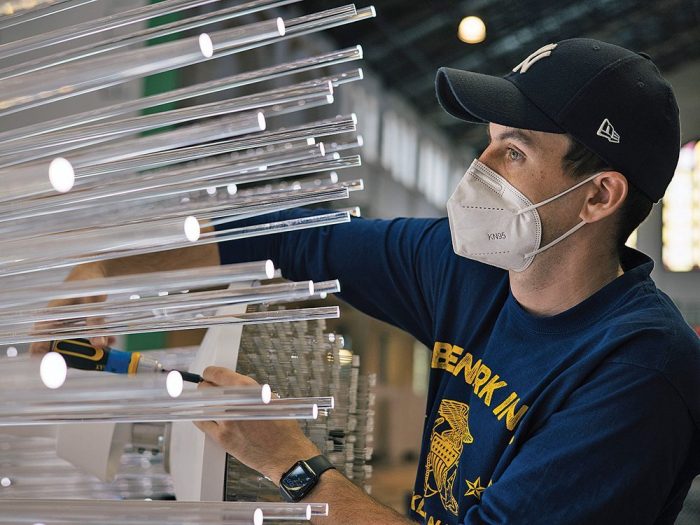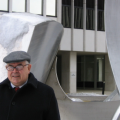What excites me about the new FUTURES exhibition
One of Smithsonian’s most storied buildings is reopening with an eye toward humanity’s great potential.

The Smithsonian’s Arts and Industries Building opened in 1881 as the first United States National Museum with a radical new philosophy. Museums could do more than research and showcase; they could teach and inspire as well. Thousands flocked to the Mall’s newest building to see firsthand the inventions that were changing the world: the electric light bulb, the steam locomotive, Alexander Graham Bell’s telephone. AIB pioneered many of the Smithsonian features we now consider essential: descriptive labels to explain what people saw, new ways of organizing displays to tell stories, and even “living animal” collections (an initiative that would eventually grow into the National Zoo).
The museum of the past must be set aside, reconstructed, transformed…into a nursery of living thoughts.
It should be a house full of ideas.George Brown Goode,
First curator of the Smithsonian’s Arts and Indus tries Building
1899
By the time I worked as a curator at the National Museum of American History, AIB was serving even younger audiences: My daughter attended preschool in the building that had once housed the Star-Spangled Banner and the Spirit of St. Louis.
This November, after being closed for nearly two decades, AIB has temporarily reopened to the public with the launch of a new exhibition, “Futures.” The building-wide exhibit exemplifies the notion that the Smithsonian has always been a forward-looking institution. Continuing AIB’s long legacy of creativity and innovation, “Futures” features art installations, technology debuts, interactive experiences and ideas that preview humanity’s many potential futures. The exhibition doesn’t claim to predict what will happen, but rather asks visitors to engage with a range of possibilities—and, most important, to craft those possibilities themselves. Audiences can design future cities alongside an artificial intelligence architect, watch clean drinking water get harvested from the air, see clothes get washed in a wetland, or experience robot-guided meditation. Debuting in the central rotunda, “me + you,” Suchi Reddy’s AI-based installation, invites visitors to share their own future visions to help shape a two-story column of color and light. “Futures” is turning AIB into the hub of ideas—inventive, intriguing, ingenious—that Goode envisioned.
As the Smithsonian reflects on 175 years of service, “Futures” reminds me that the best museums are as much about today and tomorrow as they are about yesterday. And as we plan and strategize for the years to come, the exhibition represents the Smithsonian’s purpose going forward: to spark discovery, empower creativity and inspire wonder.
This post was originally published in the December issue of Smithsonian magazine. Copyright 2021 Smithsonian Institution. Reprinted with permission from Smithsonian Enterprises. All rights reserved. Reproduction in any medium is strictly prohibited without permission from Smithsonian Institution.
Posted: 22 November 2021
-
Categories:
Art and Design , Collaboration , From the Secretary , Science and Nature








